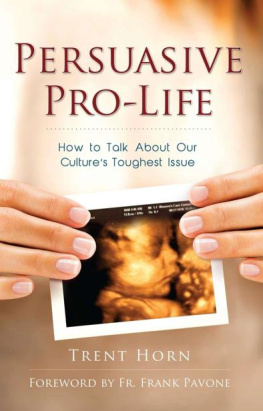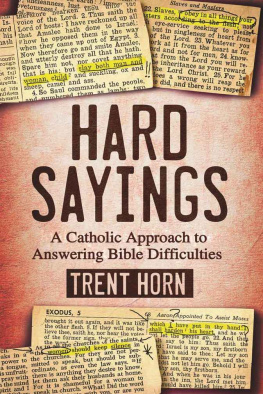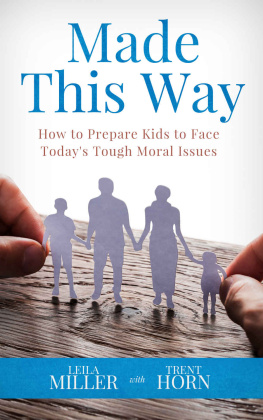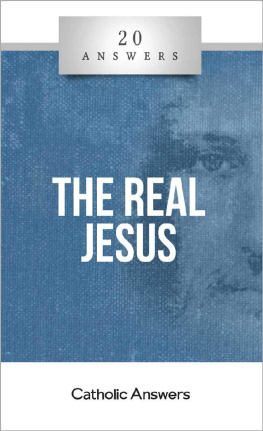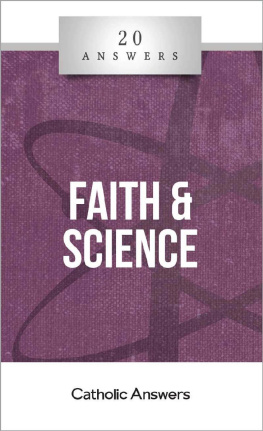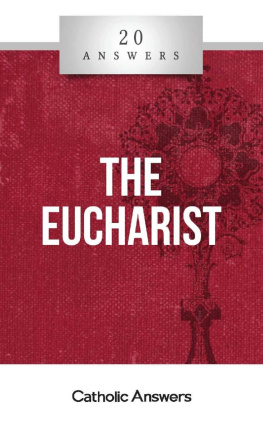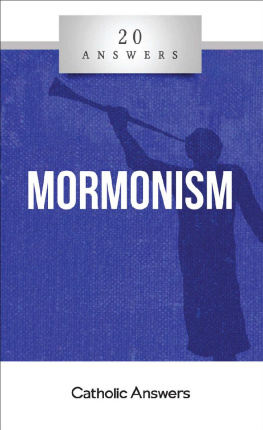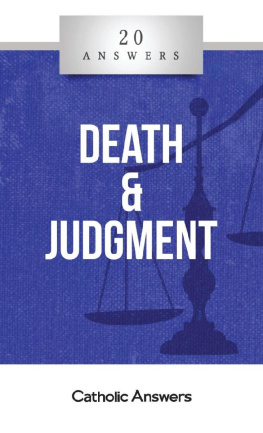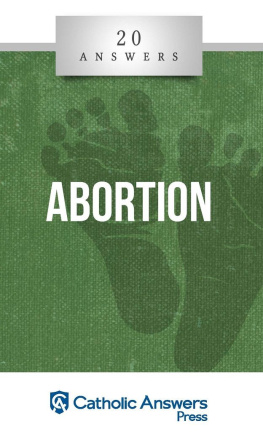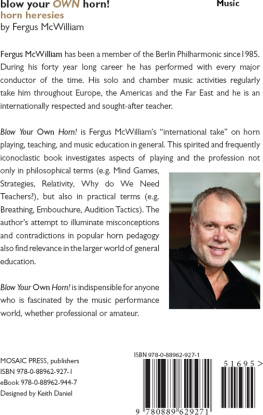Trent Horn - What the Saints Never Said: Pious Misquotes and Subtle Heresies
Here you can read online Trent Horn - What the Saints Never Said: Pious Misquotes and Subtle Heresies full text of the book (entire story) in english for free. Download pdf and epub, get meaning, cover and reviews about this ebook. year: 2018, publisher: Catholic Answers Press, genre: Religion. Description of the work, (preface) as well as reviews are available. Best literature library LitArk.com created for fans of good reading and offers a wide selection of genres:
Romance novel
Science fiction
Adventure
Detective
Science
History
Home and family
Prose
Art
Politics
Computer
Non-fiction
Religion
Business
Children
Humor
Choose a favorite category and find really read worthwhile books. Enjoy immersion in the world of imagination, feel the emotions of the characters or learn something new for yourself, make an fascinating discovery.

- Book:What the Saints Never Said: Pious Misquotes and Subtle Heresies
- Author:
- Publisher:Catholic Answers Press
- Genre:
- Year:2018
- Rating:3 / 5
- Favourites:Add to favourites
- Your mark:
- 60
- 1
- 2
- 3
- 4
- 5
What the Saints Never Said: Pious Misquotes and Subtle Heresies: summary, description and annotation
We offer to read an annotation, description, summary or preface (depends on what the author of the book "What the Saints Never Said: Pious Misquotes and Subtle Heresies" wrote himself). If you haven't found the necessary information about the book — write in the comments, we will try to find it.
What the Saints Never Said: Pious Misquotes and Subtle Heresies — read online for free the complete book (whole text) full work
Below is the text of the book, divided by pages. System saving the place of the last page read, allows you to conveniently read the book "What the Saints Never Said: Pious Misquotes and Subtle Heresies" online for free, without having to search again every time where you left off. Put a bookmark, and you can go to the page where you finished reading at any time.
Font size:
Interval:
Bookmark:
What the Saints
Never Said
Pious Misquotes
and the
Subtle Heresies
They Teach You
Trent Horn

2018 Trent Horn
All rights reserved. Except for quotations, no part of this book may be
reproduced or transmitted in any form or by any means, electronic or
mechanical, including photocopying, recording, uploading to the Internet, or
by any information storage and retrieval system, without written permission
from the publisher.
Unless otherwise noted, biblical citations are taken from the Revised Standard
Version of the Bible ( 1971 by Division of Christian Education of the National
Council of the Churches of Christ in the United States of America).
Published by
Catholic Answers, Inc.
2020 Gillespie Way
El Cajon, California 92020
1-888-291-8000 orders
619-387-0042 fax
catholic.com
Printed in the United States of America
Cover design by Theodore Schluenderfritz
Interior design by Claudine Mansour Design
978-1-68357-069-1
978-1-68357-070-7 Kindle
978-1-68357-071-4 ePub
To the saints:
pray for us.
Table of Contents
This work would not have been possible without the help of the Catholic Answers editorial department. In addition, Im grateful to those who have researched these quotations before me and have included citations in their works. I know that some of these researchers might take me to task and find, for example, the original source for a quote that I have declared a fake. Great! If I can spur someone to provide a contribution to the collective wisdom of the saints, even if it is just a proper citation for that wisdom, then that is worth an emendation in a future edition of this book. As Cardinal Newman said, Nothing would be done at all, if a man waited till he could do it so well that no one could find fault with it.
The villain clad in black raises his fist at the hero and says, Luke, I am your father! The dashing captain unfolds his communicator and gives the order, Beam me up, Scotty. A mysterious jungle man sets down the woman hes rescued and she teaches him to say, Me Tarzan, you Jane. What do these three things have in common?
You might say theyre lines from famous movies: The Empire Strikes Back , Star Trek , and Tarzan the Ape Man respectively. But then you remembered this is a book about fake quotations and you changed your answer: theyre misquotations from famous movies.
In The Empire Strikes Back , Luke Skywalker accuses Darth Vader of killing his father. Vader responds, No, I am your fathernot Luke, I am your father. The crew of the Starship Enterprise often asked Chief Engineer Montgomery Scott to beam them up via the transporter, but no one in the Star Trek films or television shows ever said, Beam me up, Scotty. Finally, in the 1932 classic Tarzan the Ape Man , Tarzan only says Tarzan. Jane. Tarzan. Jane, not Me Tarzan, you Jane.
Misquotations arent restricted to fictional characters, either. George Washington never admitted to chopping down a cherry tree by saying, I cannot tell a lie; Albert Einstein never said, Insanity is doing the same thing over and over again and expecting different results; and Vince Lombardi didnt coin the phrase, Winning isnt everything, its the only thing. In this book youll see which famous sayings attributed to the saints of the Catholic faith are misquotations, misattributions, and in some cases total fabrications.
Whats the Big Deal?
Before I continue, I need to address readers who might be rolling their eyes or muttering the word nitpicker. Does it really matter if people get one word wrong in a line from a Star Wars film? Who cares if the cute story about George Washington and the cherry tree never happened? Why cant you just leave the saints alone and write about something important? But accurately recording the wisdom of saints and other well-known Catholics is important because truth is important.
We are ambassadors for Christ and our testimony about him needs to be trustworthy (2 Cor. 5:20). If people see us carelessly passing along information or stories that arent true, then they may doubt us when we quote the wisdom of Christ or tell the story of salvation that has taken place through him. As St. Teresa of Avila once said, Never affirm anything unless you are sure it is true.
Its also important to give credit where credit is due. Imagine that your daughter broke a sports record and a friend of yours mistakenly praised your son for breaking that record. Youd gently remind this friend that it was actually your daughters accomplishment, not your sons, because youd want her to receive the praise she deserves for her hard work. Likewise, the saints are our brothers and sisters in Christ, and so we should do our best to accurately praise their wisdom and deeds that lead people closer to our Lord.
But the most important reason we should challenge false quotes from saints is because in some cases they contradict the Faith these saints embraced. I wouldnt be surprised if some of the saints are charitably yelling from heaven, No! I actually said the opposite of that! The major fake quotes in this book are not merely paraphrases of saintly wisdom or harmless pieces of advice that have been falsely attributed to the saints, although I do cover those kinds of quotes, too. Instead, each chapter in this book addresses a theme embodied in a well-known quote that is contrary to our Faith.
Part I addresses quotes that misunderstand the relationship between faith and works. They teach lessons like Dont talk about Jesus with other people, Good works matter more than being holy, and Rely on yourself before you rely on God. Part II covers quotes that misunderstand the relationship between faith and reason and teach lessons like Dont worry about defending the Faith, God always wants you to be happy, and Faith is belief apart from reason.
Tracking Down Fake Quotes
Most people come across fake quotes on popular quote websites or see them in online memes that contain pictures of famous people next to inspirational quotes. My favorite one of these memes has a picture of Abraham Lincoln next to this text: The problem with quotes on the Internet is that it is hard to verify their authenticity.
Writing this book has shown me, however, that it is easier to prove an authentic quote than disprove an inauthentic quote.
To prove a quote is authentic, you only have to produce the work from which the quote comes. In some cases, the person to whom the quote is attributed may not have left behind any writings, and so a citation from a reliable secondary source can suffice. For example, during his earthly ministry Jesus did not write anything down, so the record of what he said is recorded in the Gospels. But even these are not exhaustive. St. Paul, for example, recites a saying of Jesus that is not recorded in the Gospels: It is more blessed to give than to receive (Acts 20:35). St. John tells us that there are also many other things which Jesus did; were every one of them to be written, I suppose that the world itself could not contain the books that would be written (John 21:25).
This leads to the problem of proving that a certain quote is inauthentic. What John says about Jesus is true, generally speaking, about most people. People say and do much more than what is recorded about them in biographies or even their own autobiographies and memoirs. Therefore, when I say that a certain quote is inauthentic or fake, Im not saying it is certain the person never uttered the words in question. Instead, Im saying that we have no reason to believe they said these words because they do not exist in either a primary source or a reliable secondary source that describes what he or she said and did.
Font size:
Interval:
Bookmark:
Similar books «What the Saints Never Said: Pious Misquotes and Subtle Heresies»
Look at similar books to What the Saints Never Said: Pious Misquotes and Subtle Heresies. We have selected literature similar in name and meaning in the hope of providing readers with more options to find new, interesting, not yet read works.
Discussion, reviews of the book What the Saints Never Said: Pious Misquotes and Subtle Heresies and just readers' own opinions. Leave your comments, write what you think about the work, its meaning or the main characters. Specify what exactly you liked and what you didn't like, and why you think so.

